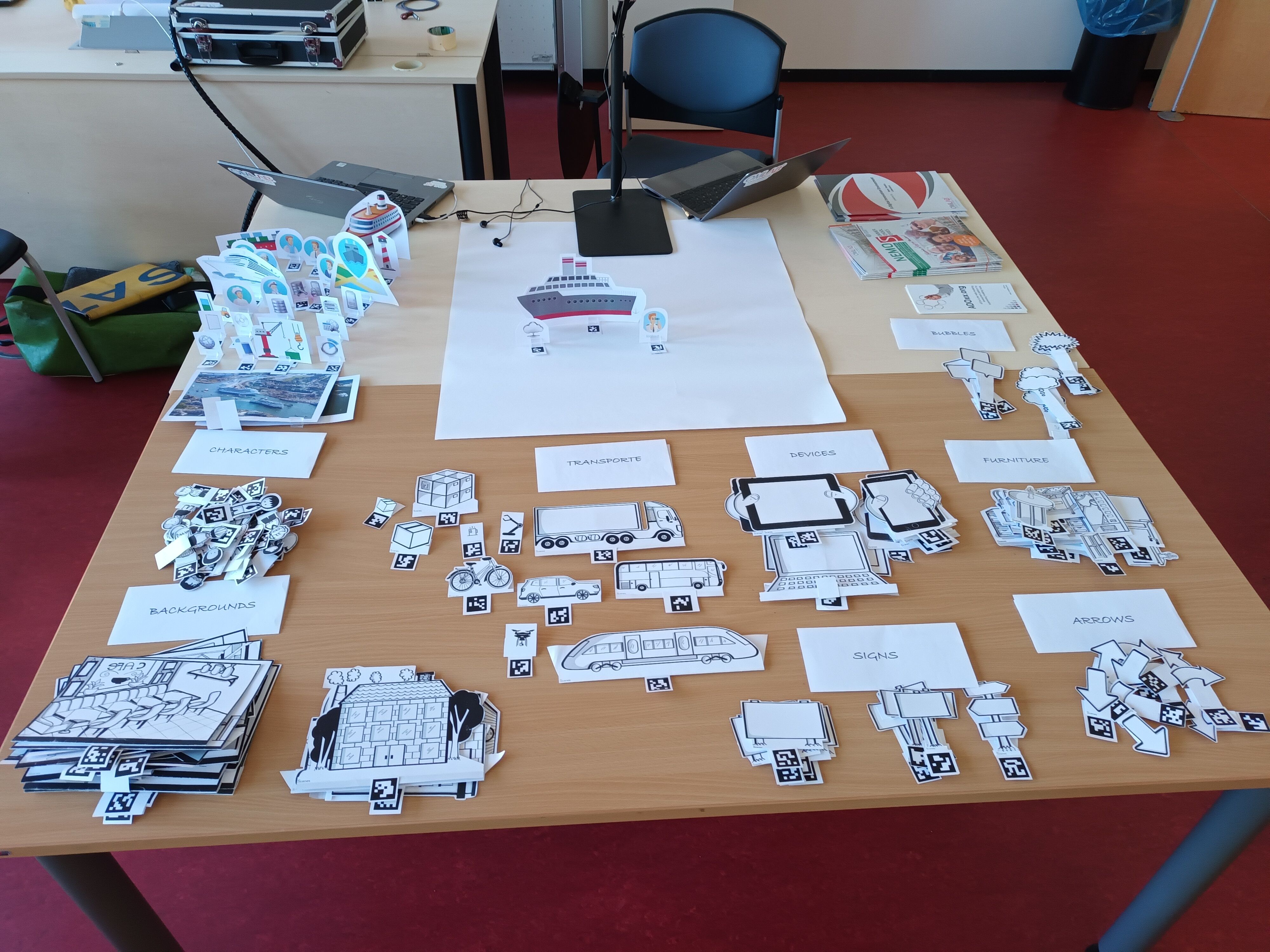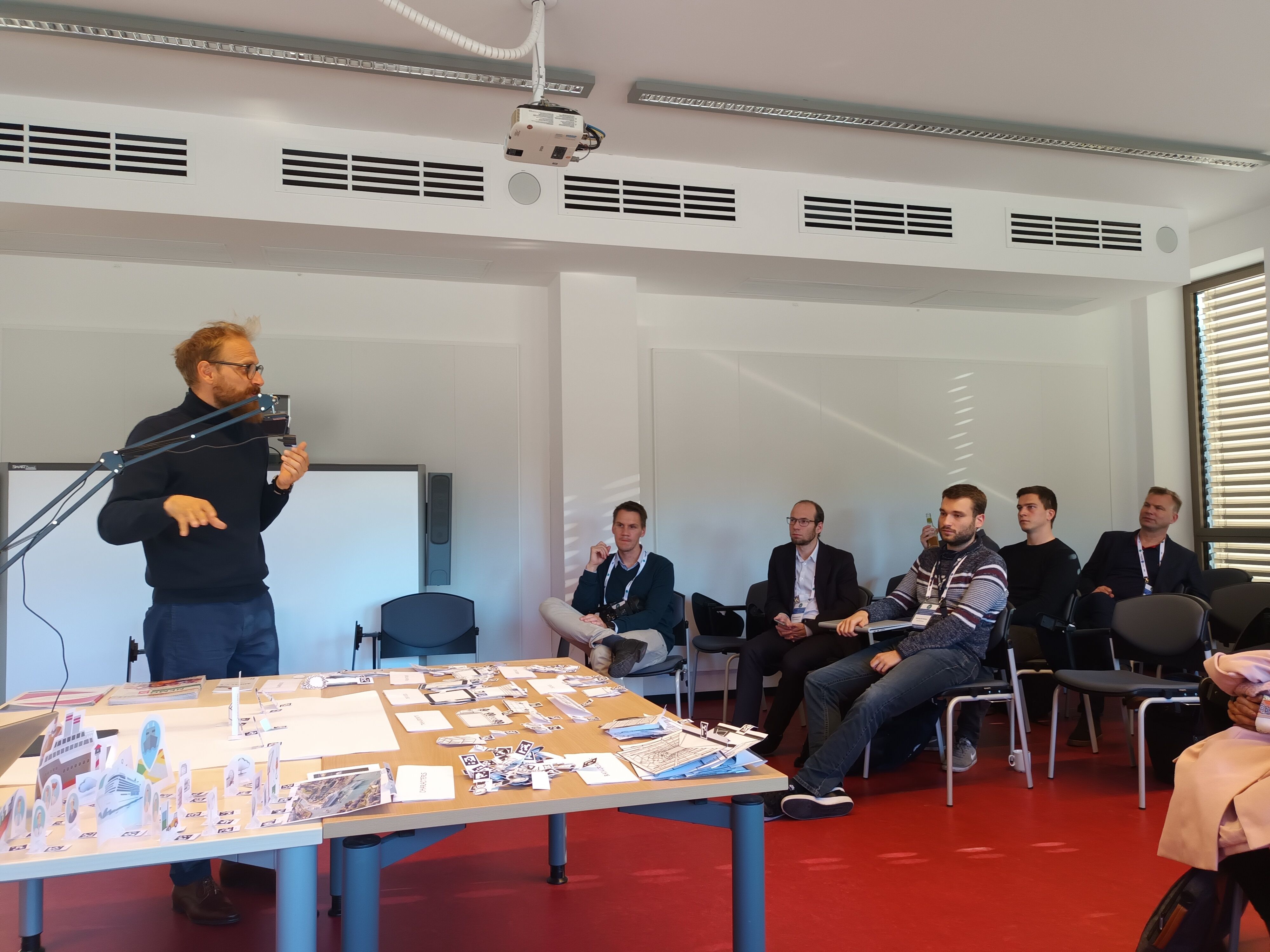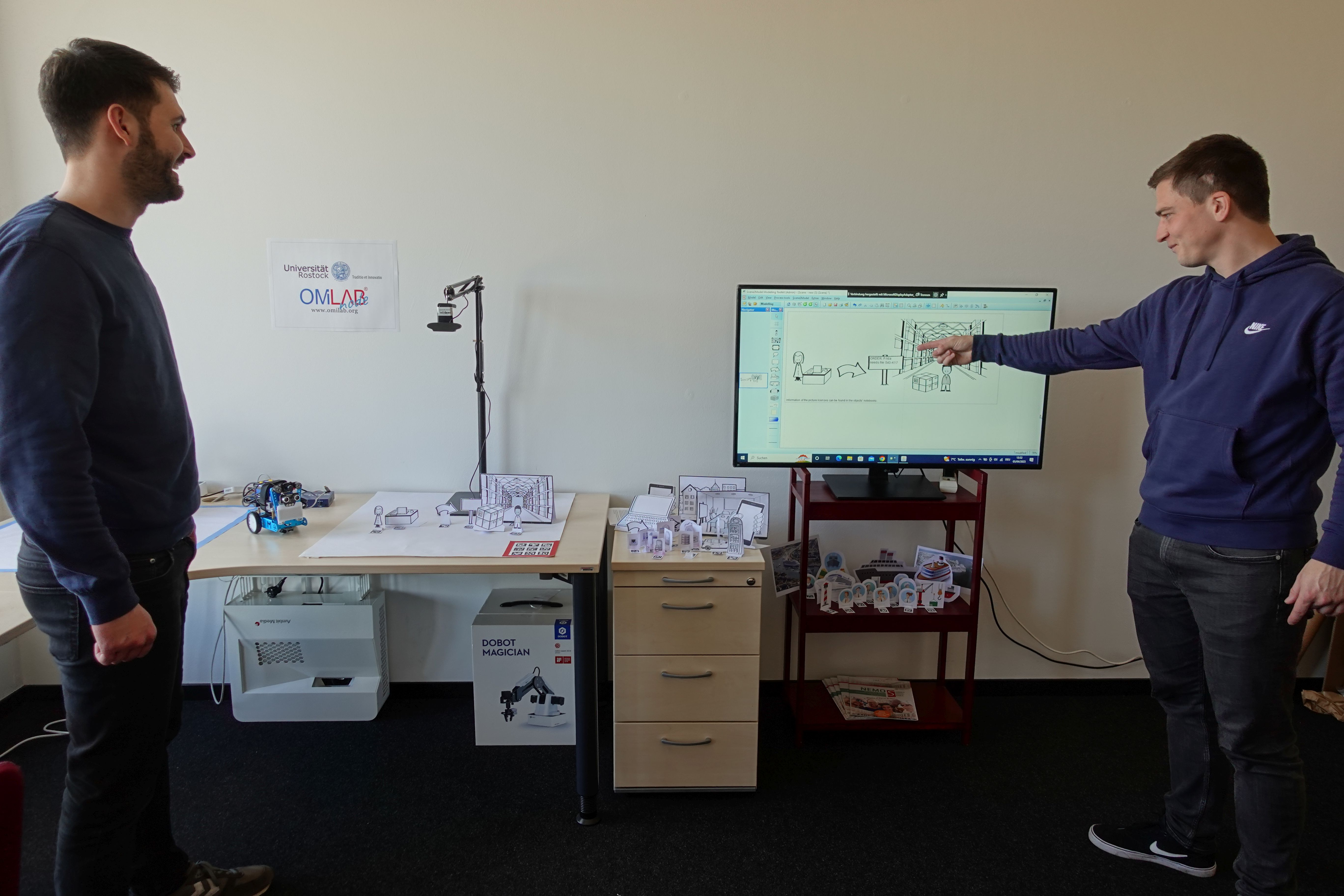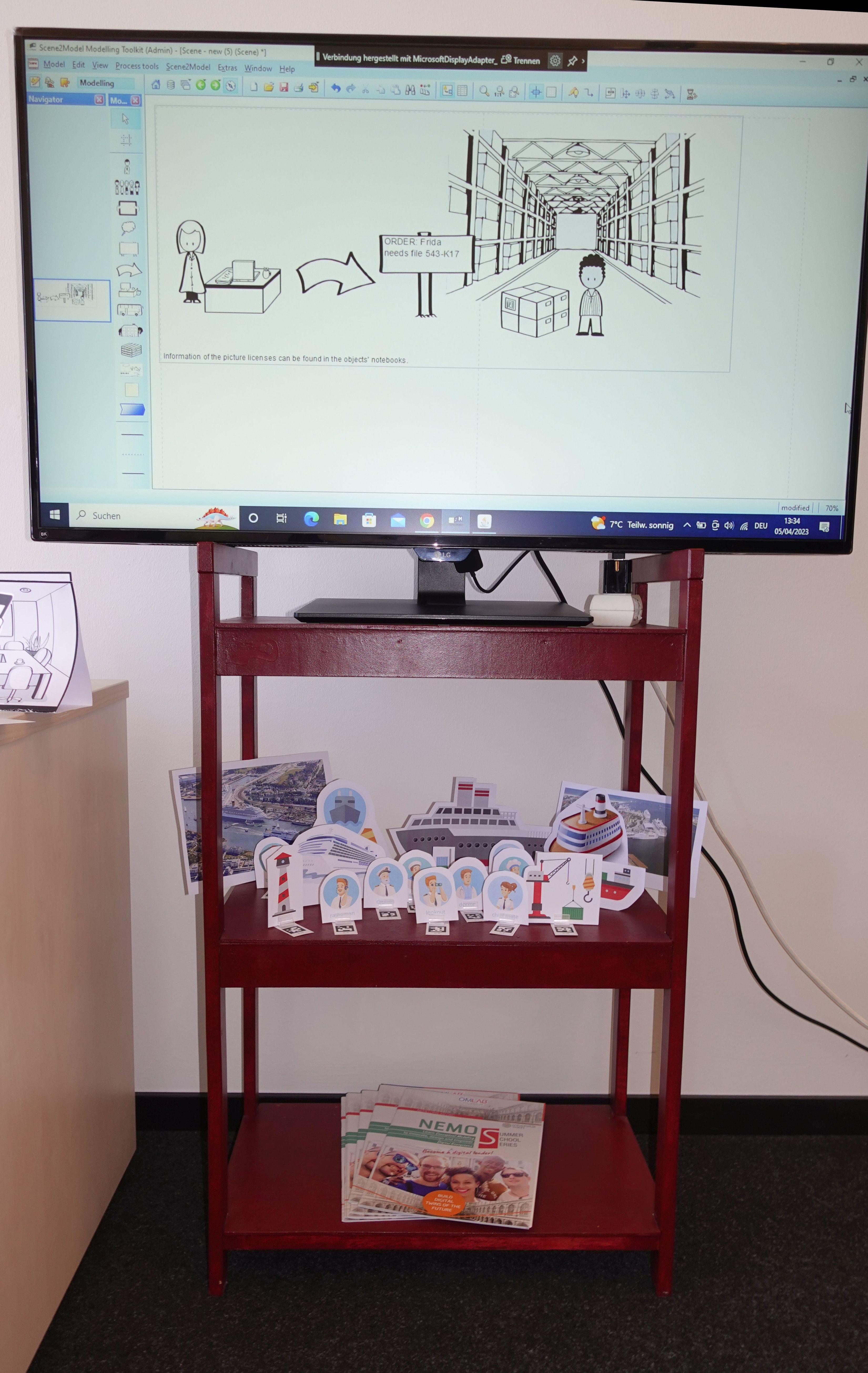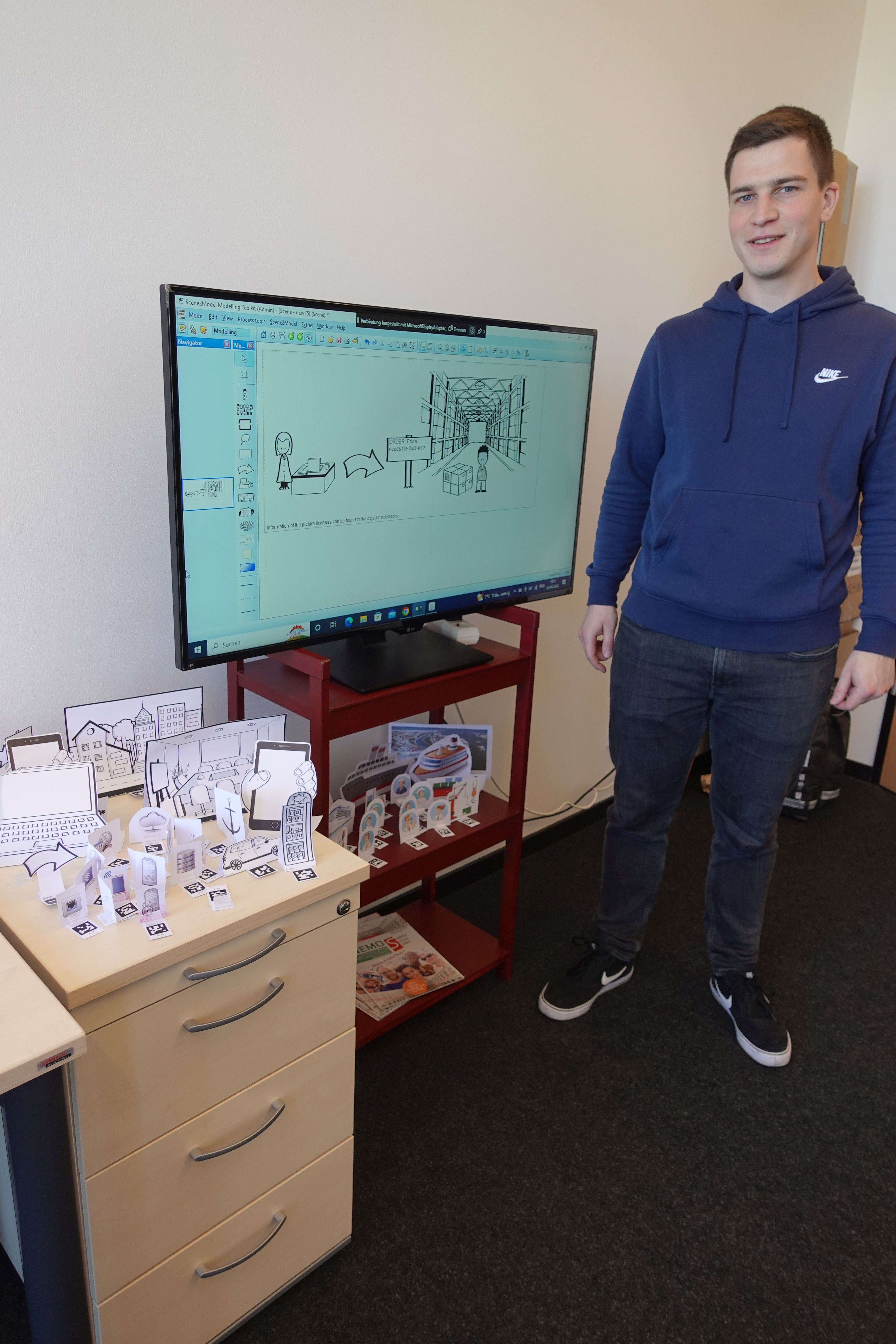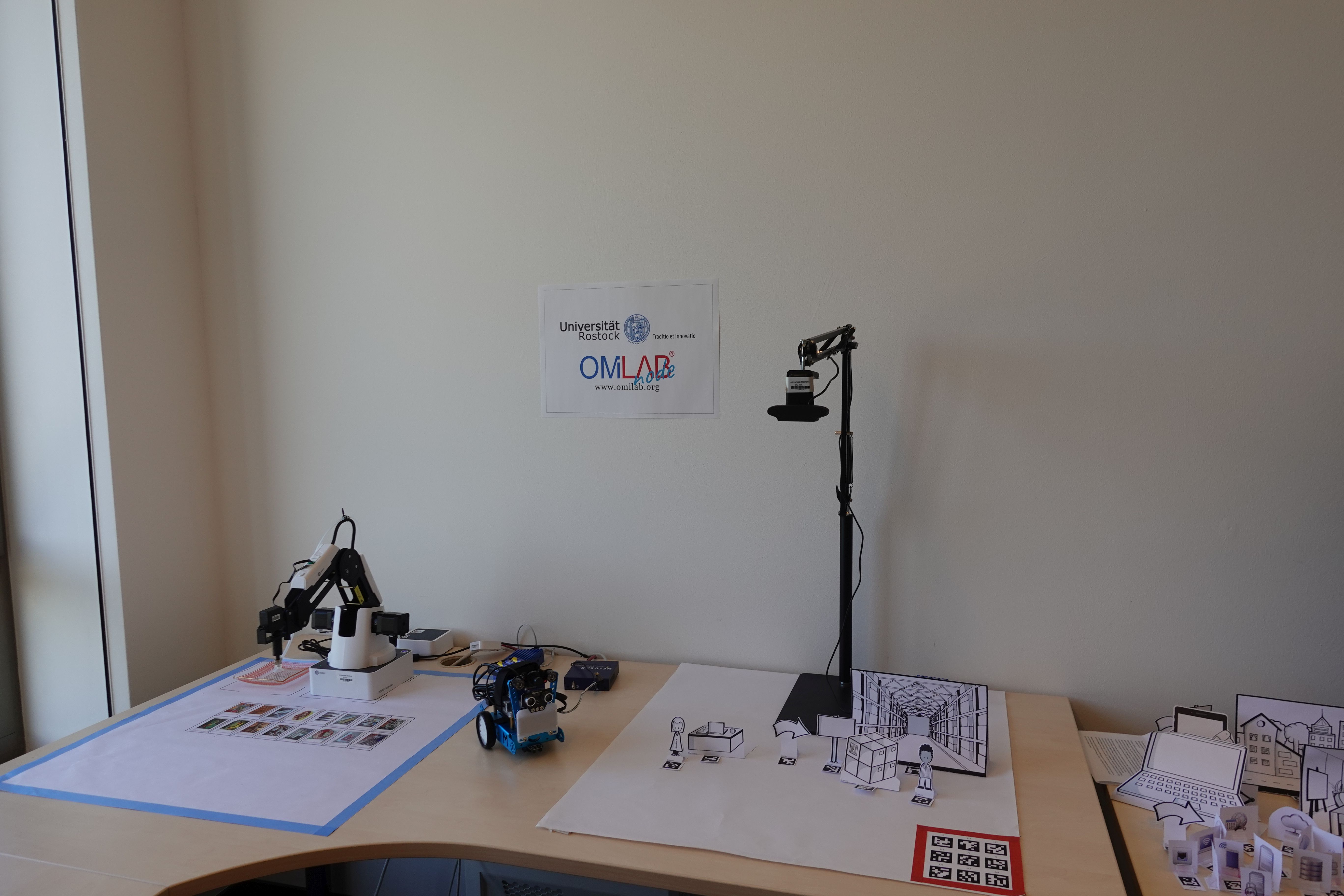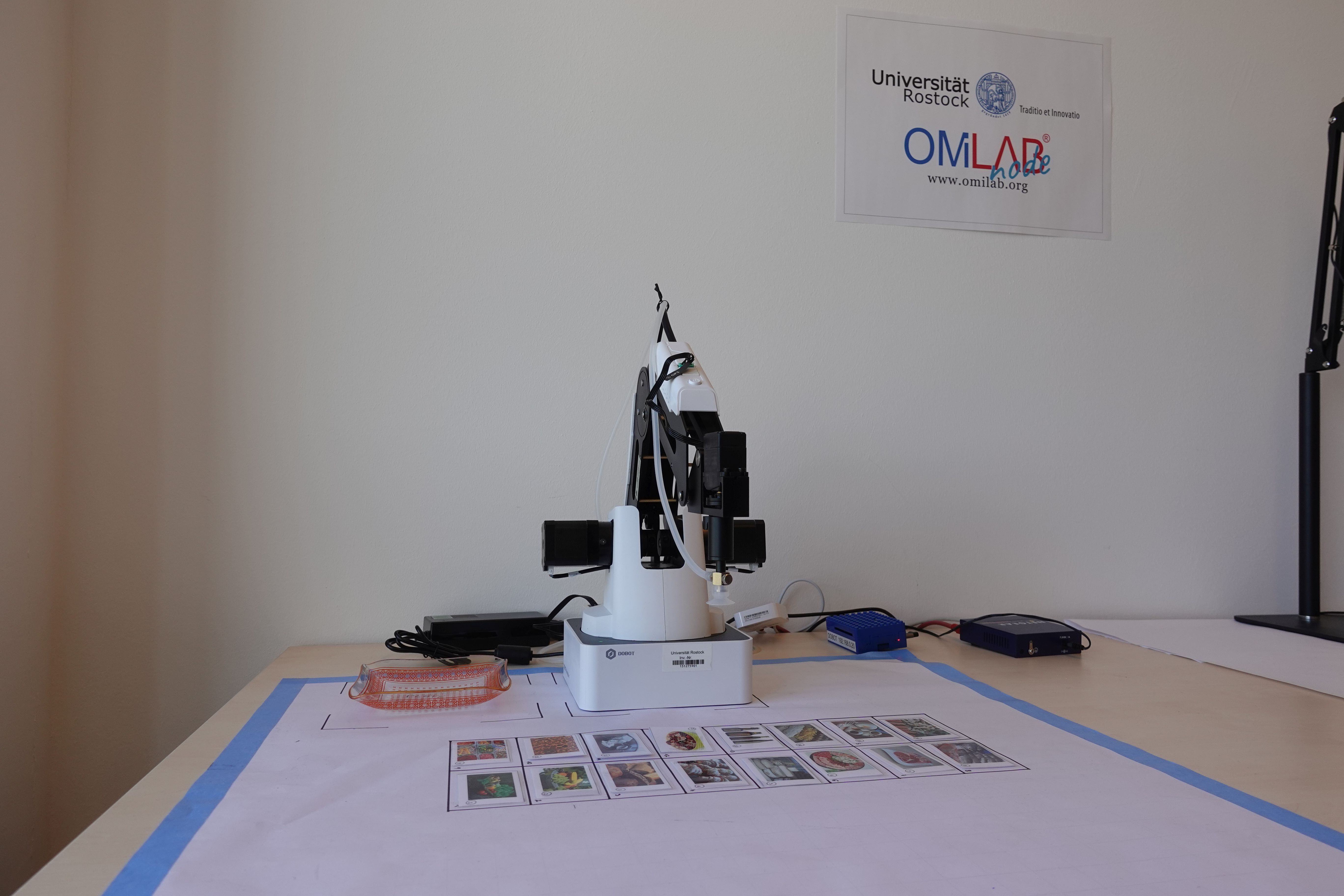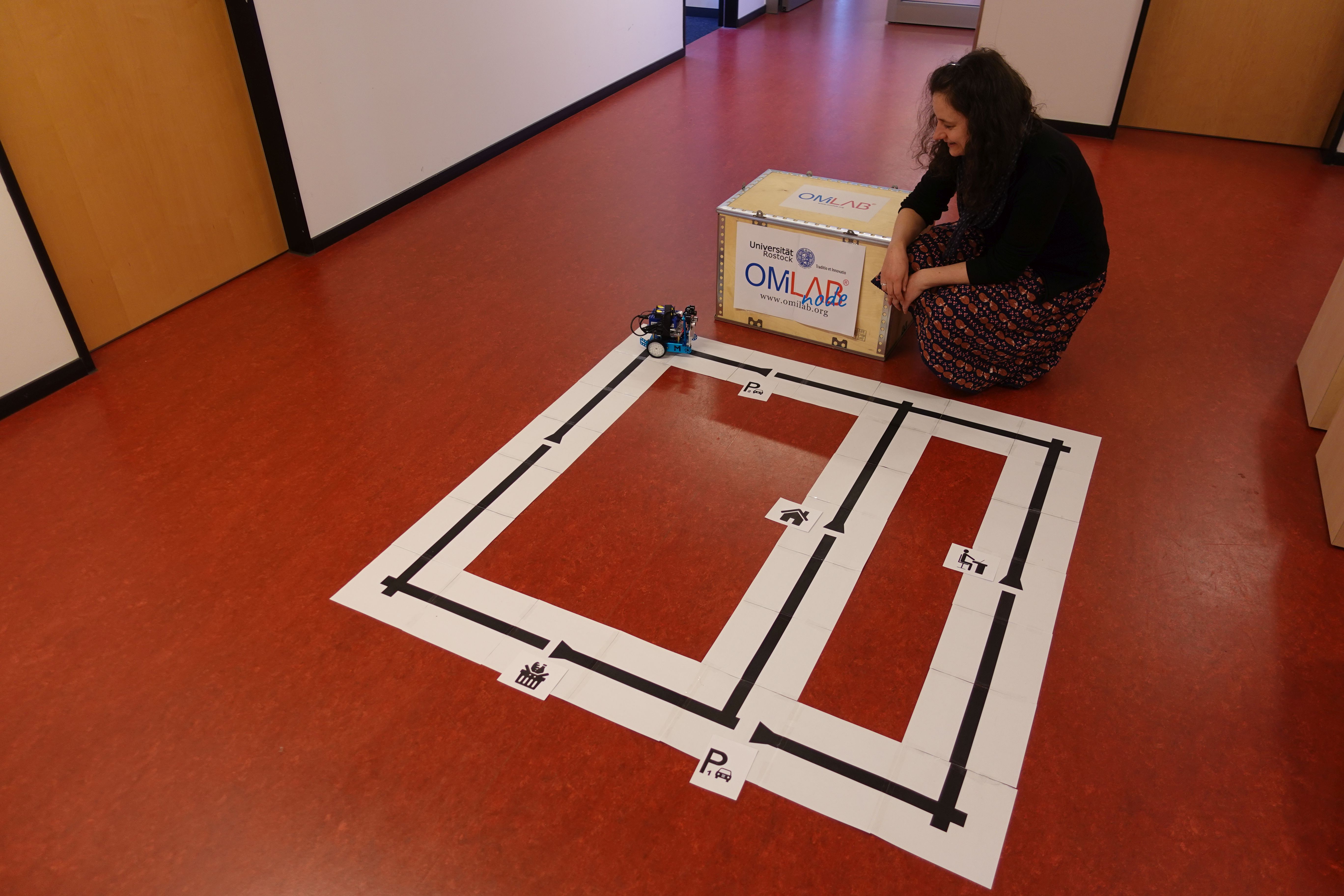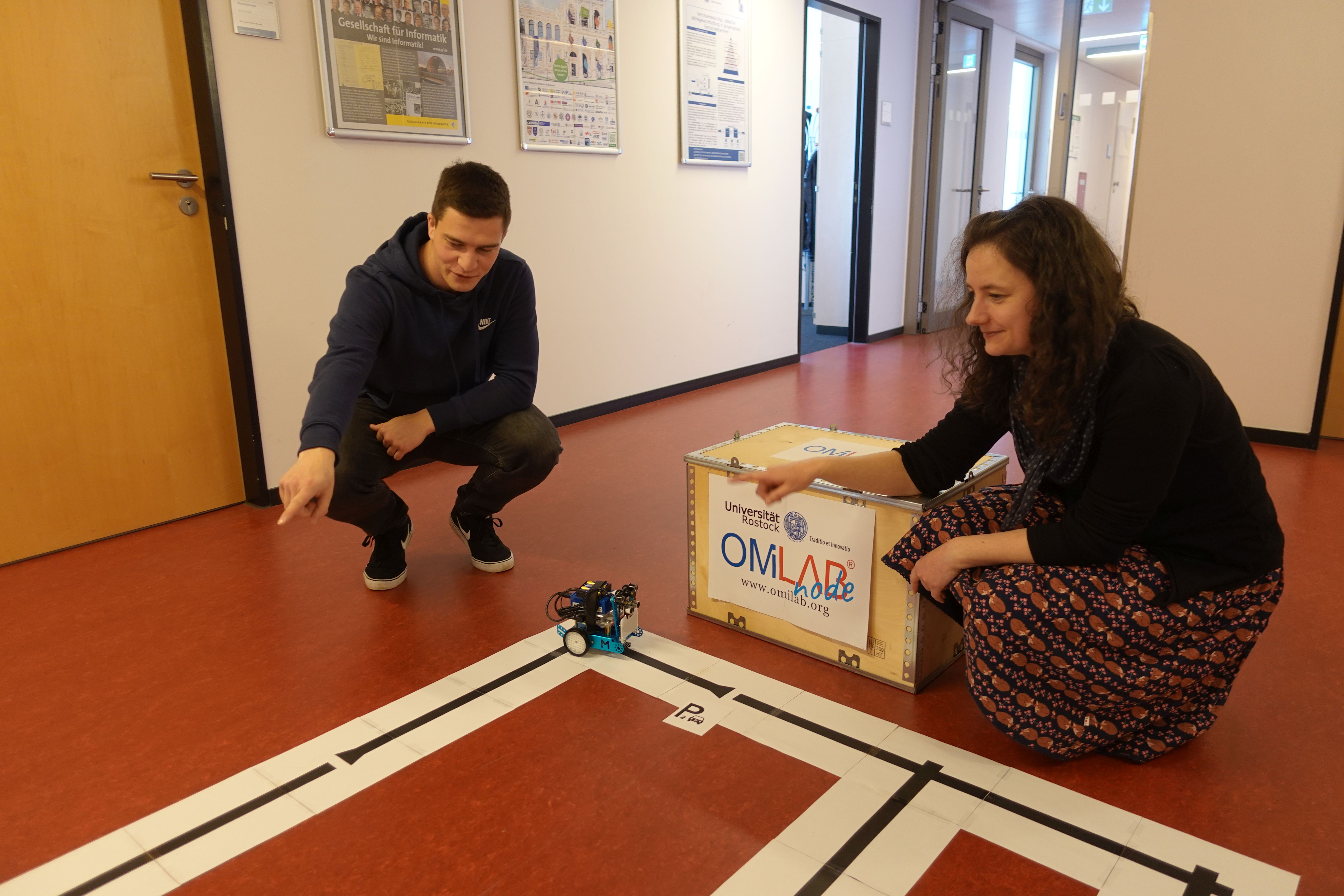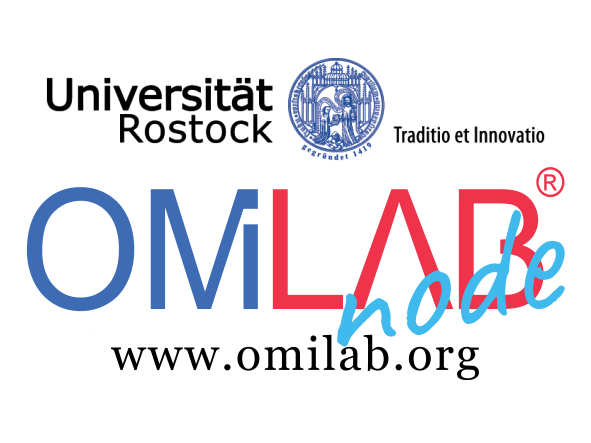
OMILAB@University of Rostock
"Digitalization and Innovation through
Participatory Enterprise Modelling"
Participatory Enterprise Modelling"
In the OMiLAB at the University of Rostock, we want to offer students and practitioners from the industry a more tangible approach to enterprise modeling.
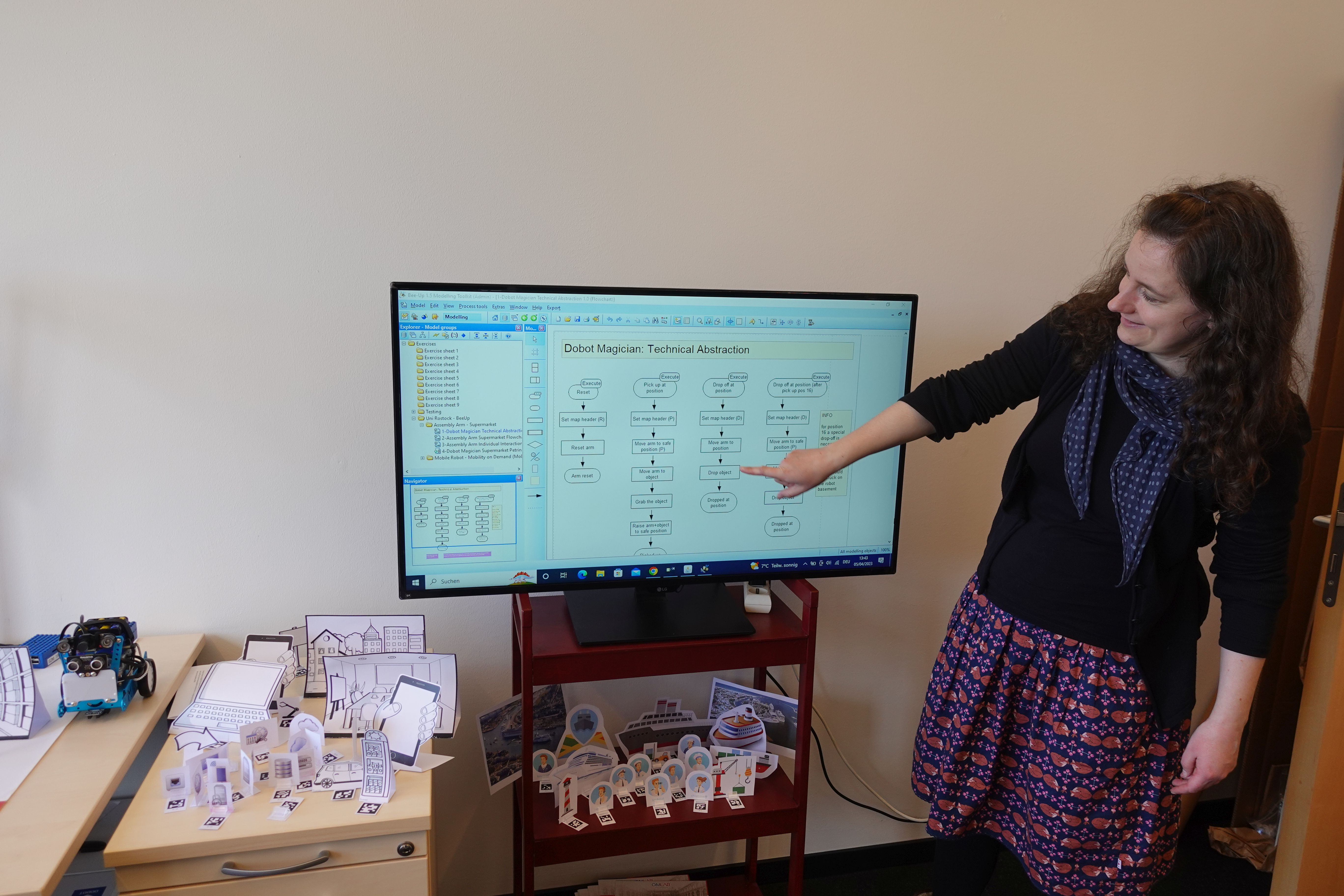
About the OMILAB Node
OMiLAB@University of Rostock wants to offer students and practitioners from the industry a more tangible approach to enterprise modeling. They can experience the benefits and advantages of modeling considering a broad range of use cases, be it developing digital business models or the execution of process models.
The OMiLAB@University of Rostock node also helps researchers to explore enterprise modeling methods, practices, and tools. On the one hand, we want to find out how best to train students to become modeling experts. On the other hand, we want to explore how models can be created in a participatory way, especially involving experts from different domains without modeling knowledge.
The OMiLAB@University of Rostock node also helps researchers to explore enterprise modeling methods, practices, and tools. On the one hand, we want to find out how best to train students to become modeling experts. On the other hand, we want to explore how models can be created in a participatory way, especially involving experts from different domains without modeling knowledge.
Competences
- Reference and Enterprise Architecture
- Digital Business Models
- Participatory Modelling
About the Hosting Organisation
The University of Rostock is one of the oldest universities in the Baltic Sea Region.
It comprises nine faculties. The interdisciplinary faculty as a scientific key institution connects researchers and students from all disciplines in currently four profile lines, such as Life, Light and Matters, Maritime Systems, Ageing of Individual and Society, and Knowledge, Culture, Transformation.
In 1992, the chair of the Business Information Systems was established at the University of Rostock. The team researches and teaches in the field of business information systems. Since 2010, our research has focused on enterprise modeling, knowledge modeling, and information logistics. Furthermore, our research profile includes digital business models and introducing and integrating Artificial Intelligence into enterprises.
It comprises nine faculties. The interdisciplinary faculty as a scientific key institution connects researchers and students from all disciplines in currently four profile lines, such as Life, Light and Matters, Maritime Systems, Ageing of Individual and Society, and Knowledge, Culture, Transformation.
In 1992, the chair of the Business Information Systems was established at the University of Rostock. The team researches and teaches in the field of business information systems. Since 2010, our research has focused on enterprise modeling, knowledge modeling, and information logistics. Furthermore, our research profile includes digital business models and introducing and integrating Artificial Intelligence into enterprises.
Results
Get an overview what this OMiLAB has accomplised! Selected results are presented below as a contribution to the global community:
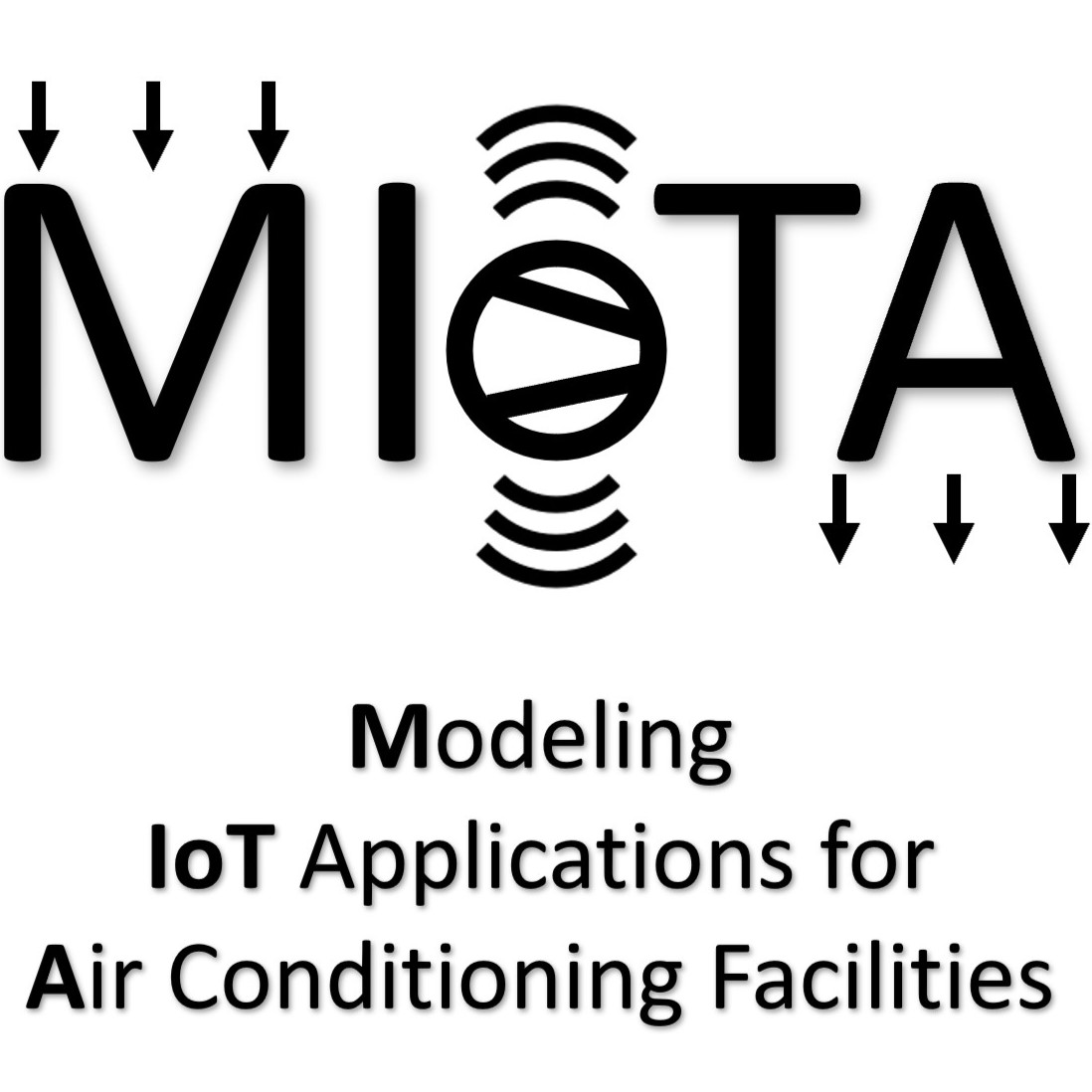
MIoTA-Modeling IoT Applications for Air Conditioning Facilities
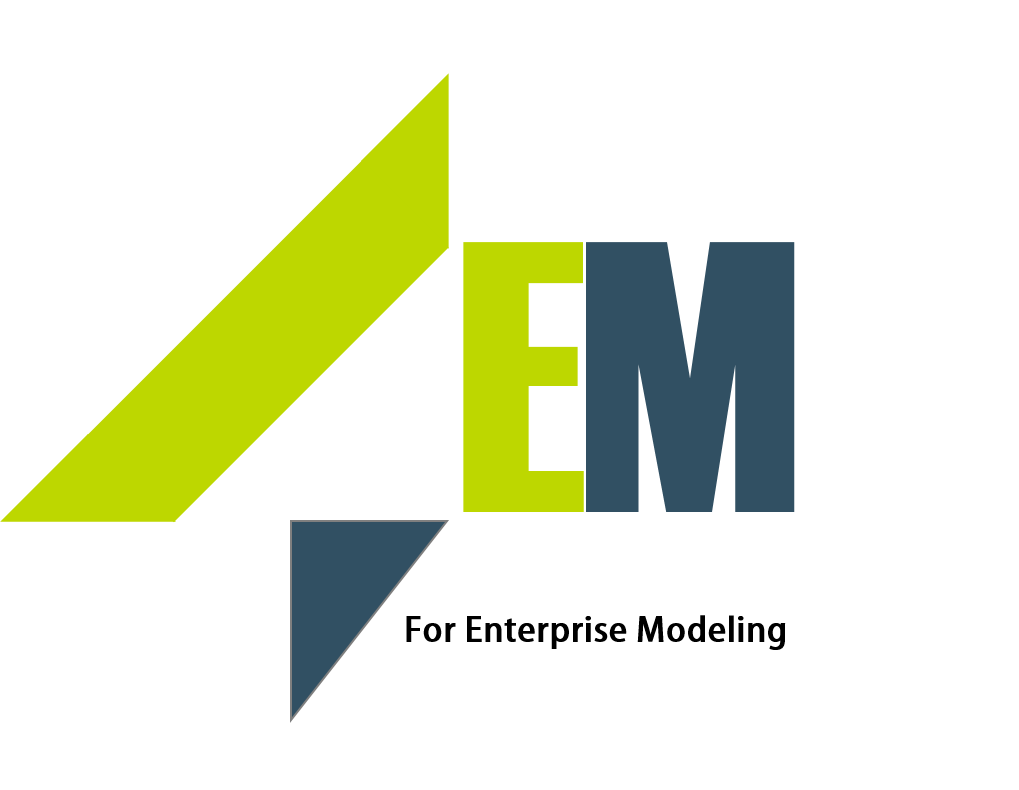
Enterprise Modelling with 4EM
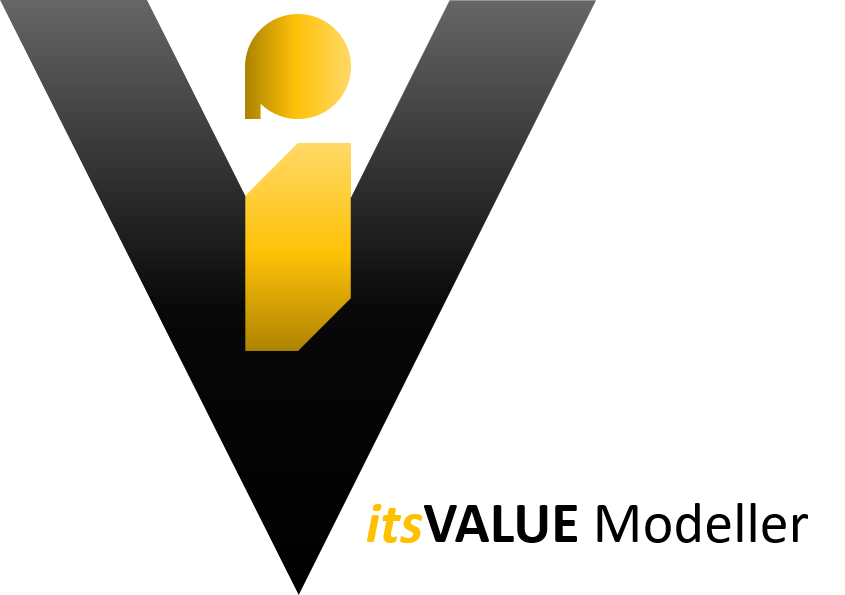
itsVALUE
All further results of the OMiLAB Node are via the organizer.
Activities
The following, selected activities are organized by the OMiLAB.
Digital Transformation of Organizations - How Enterprise Modelling can help (NEMO Summer School)
In many industrial sectors and service domains, enterprises change or extend their business models based on digital technologies. Examples are smart connected products allowing for monitoring and control of physical devices, services with customer journeys digitalized end-to-end, or platforms offering data-driven services as complement to product-service bundles. The resulting digital transformation of enterprises causes substantial changes in the operational processes and organizational structures, and in the way of working with partners, suppliers and customers. Enterprise modeling offers different techniques to support digital transformation. The lecture will examine the use of modeling in digital transformation projects from a practice perspective based on selected real-world cases.
BIR2022 Conference - OMiLAB Digital Innovation Environment Demonstration
A Design Thinking Workshop within the Digital Innovation Environment of OMiLAB@UNI-ROSTOCK was organized with participants working on innovative scenarios in the maritime domain. The central theme of the BIR2022 edition is Business Informatics for Sustainable Innovation. The strategic importance of enterprise modelling for Sustainable Innovations has been recognized by an increasing number of companies and public agencies. Enterprise modelling delivers the ‘blueprints’ for co-designing and aligning business and enterprise information systems such that they optimally complement each other.
Resources
The following cyber-physical resources are available at the OMILAB node:
Scene2Model
Business Layer using SAP-Scenes
Dobot Magician
Proof of Concept Layer CPS-Device
mBot
Proof of Concept Layer CPS-Device
Publications
Relevant publications of the OMILAB node:

